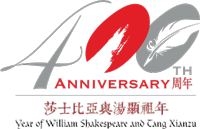Ying Kam-sha (Guest)
A former actress of Zhejiang Kunqu Opera Troupe specialized in the role of guimendan (highborn female) and daomadan (young female warriors), Ying Kam-sha took lessons from famous Chuan-generation Kunqu Opera artist Yao Chuanxiang, Shen Shihua, Zhou Xuewen, Wang Zhiquan and Zhou Zhenbang. After settling down in Hong Kong, Ying actively promotes the local development of Peking, Kunqu and Cantonese Opera and has lectured at the Hong Kong Chinese Arts Promotion Centre, City University of Hong Kong, the Chinese University of Hong Kong and the Chinese Artists Association of Hong Kong. She is currently a lecturer in performance in the School of Chinese Opera at the Hong Kong Academy for Performing Arts. Repertoires performed include Tale of the Wicked Sea, Legend of the White Snake, Mountain Lanke, The Butterfly Dream, The Hundred Flowers Fairy and The Peony Pavilion. In 2013, Ying partnered with Wen Yu Hang to perform Tale of the Jade Hairpin in Taipei and won wide acclaim from both local and overseas audience. She has been awarded with the Outstanding Little Hundred Flowers Award at the Chinese Opera Little Hundred Flowers Extravaganza, Young Performer First Prize at the 2nd Zhejiang Theatre Festival and the 24th Chinese Theatre Plum Blossom Award.
Top

Wen Yu Hang (Guest)
An honorary resident artist of Lanting Kun Opera Troupe, Wen Yu Hang formally joined the Guoguang Opera Company in 2010. As a former actor of Northern Kunqu Opera Theatre, Wen is a graduate from the Kunqu Opera Class in Beijing Chinese Opera School specializing in the xiaosheng role. He has followed famous Kunqu Opera artists Ma Yusen, Man Lemin, Zhu Shiou, Shen Shihua, Zhang Yuwen and Fu Xueyi and has also been instructed by southern Kunqu Opera artists Wang Shiyu, Cai Zhengren, Yue Meiti, Shi Xiaomei and Zhang Xunpeng. In 2012, he formally became a student of Lin Maorong, the exponent of the Peking Opera Jiang (Miaoxiang) School. In 1999, he toured to the United States to take part in the world premiere of The Peony Pavilion (full version). His role as Liu Mengmei took New York by storm, earning him the title as the “Best Liu Mengmei”. He is currently living in Taiwan. Representative repertoires include The Peony Pavilion, Legend of the White Snake, The Peony Pavilion: A Spoiled Romance, Dream of the Red Chamber: Qing Wen and The Lanting Stories. His performance of the Tale of the Jade Hairpin with Ying Kam-sha in Taipei in 2013 has won wide acclaim from both local and overseas audience.
Top

Hu Ping
A National Class Two performer, Hu Ping is a fine young actress of the Wan-generation in the Zhejiang Kunqu Opera Troupe and specializes in the guimendan role. She has followed famous Kunqu artists Wang Fengmei, Zhang Xunpeng, Zhang Zhihong and Gu Haohao. She has also been personally coached by the Chuan-generation artist Zhang Xian. Major repertoires include The Peony Pavilion (Part I and II), Tale of the West Garden, Fifteen Strings of Cash, Tale of the Red Plums, Excerpts from Tang Xianzu’s Works and Story of Qiao Xiaoqing. She has been awarded with the Best Exponent Award (Gold Prize) at the Zhejiang Traditional Opera Showcase and the 5th Zhejiang Non-Tangible Cultural Heritage Festival, the First Prize at the Zhejing Xin Song Project Young Opera Performer Contest and the 5th National Kunqu Opera Festival Outstanding Performance Award. She has toured multiple times to Taiwan, Hong Kong, Sweden, England for performance and academic exchange.
Top

Zeng Jie
A National Class Two performer, Zeng Jie is an actor of the Wan-generation in the Zhejiang Kunqu Opera Troupe and a graduate of the Kunqu Opera Class in Zhejiang Arts School specializing in the xiaosheng role. He has followed renowned performing artist Wang Shiyu and has studied at the Normal University Performing Arts Academy National Training Class for sheng and dan as well as the Zhejiang Province Chinese Opera Talents Senior Workshop. He has participated in the over 200 performances of The Peony Pavilion (hall version) in Beijing in 2007 and the Opening Ceremony (Ritual and Music section) of the 2008 Beijing Olympics as the only Chinese Opera performer. He has been acclaimed as the 2011 Recommended Artist by the Ministry of Culture and the Performing Arts Talent by the Zhejiang Provincial Department of Culture in 2014.
Top

Zhang Shizheng
An actor of the Shi-generation in the Zhejiang Kunqu Opera Troupe, Zhang Shizheng is a famous Kunqu Opera performing artist and a National Class One performer. He first followed Zhou Chuanying and Gong Xiangfu to learn the xiaosheng role and later switched to learn the laosheng role from Zheng Chuanjian and Bao Chuanduo. Repertoires performed include Fifteen Strings of Cash, Tale of Qin Xianglian, The United Knot, The Faithful and Filial Yang Siliang, Pond of Blood and Tears and Legend of the Red Lantern. He has also written scores for over ten plays including The Lioness Roars, The United Knot and Legend of the Red Lantern as well as adapted and created many traditional excerpts and new repertoires. On top of all these, Zhang has written widely about Kunqu and has published the work I am the mo (old male) in Kunqu in Taiwan in 2000.
Top

Wang Shiyao
A National Class One performer and a renowned Kunqu Opera performing artist, Wang Shiyao is an actor in the Shi-generation of Zhejiang Kunqu Opera Troupe. He started to learn the arts at a young age from his father, famous Kunqu Opera chou artist Wang Chuansong. His performance style is funny but not vulgar, earning him the title as the “True Heir of fuchou in Kunqu Opera”. Performed repertoires include Touring the Hall from Tale of the West Chamber, Writing the Petition from The Story of Gauze Silk, The Marriage Proposal from The Butterfly Dream, The Wedding Night from The Mismatch Caused by a Kite and Asking for the Doctor from Pavilion for Worshipping the Moon. While winning wide acclaim within the circle, Wang actively promotes the perpetuation work of Kunqu Opera with his arranged works Teaching the Song from The Story of Li Wa and Meeting in the Aloe Wood being awarded at provincial extravaganzas.
Top

Hu Linan
A National Class Two performer, Hu Linan is a fine young actor in the Wan- generation of Zhejiang Kunqu Opera Troupe and a graduate from the Zhejiang Provincial Arts School. He specializes in the hualian (painted face) role and has taken lessons from famous performing artists Guan Changli, He Bingquan, Zhu Yufeng and Cheng Weibin. He has a robust stage persona and a resounding voice. He is a recipient of multiple awards including Hong Sheng Cup Performer Second Class Award, Zhejiang Kunqu Opera and Peking Opera Young Performer Contest Third Class Award as well as Zhejiang Kunqu Opera Performer and Musician Contest Third Class Award.
Top

Wang Jing
An actress in the Wan-generation of Zhejiang Kunqu Opera Troupe, Wang Jing is a graduate from the Kunqu Opera Class in Zhejiang Provincial Arts School specializing in the zhengdan (orthodox female) role. She has taken lessons from famous Kunqu Opera performing artists Liang Guyin and Wang Fengmei. Frequently-played repertoires include Mountain Lanke, The Butterfly Dream, Yearning for the Mortal World, Catching Zhang Alive, Requesting Tea, Seduction with a Lute, The Departing Soul, Broken Bridge, Meeting in the Aloe Wood and Fooling Uncle and Leaving Brother. He has been awarded with the Hong Sheng Cup Zhejiang Kunqu Young Performer Contest Silver Prize and Zhejiang Xin Song Project Young Performer Contest Gold Prize.
Top

Bao Chen
A National Class Two performer and a graduate from the Kunqu Opera Class in Zhejiang Provincial Arts School, Bao Chen is a Wan-generation actor in the Zhejiang Kunqu Opera Troupe specializing in the laosheng role. He has followed famous Kunqu performing artists Ji Zhenhua, Zhang Shizheng, Lu Yongchang and Tao Weiming. Representative repertoires include Fifteen Strings of Cash, Mountain Lanke, Butterfly Dream, Sweeping the Pine. He is a recipient of multiple awards including Zhejiang Kunqu Opera and Peking Opera Young Performer Contest Silver Prize, National Kunqu Opera Young Performer Contest Performance Award, Zhejiang Kunqu Performer Contest Silver Prize and the 5th National Kunqu Arts Festival Performance Award.
Top

Koo Siu Sun (Playwright)
Active in the local literary circle in his early years, Koo Siu-sun has published widely writings and art criticisms using the pen name of Gu Cangwu in newspapers and periodicals in the mainland, Hong Kong and Taiwan. He has co-founded a number of publications including Pan Gu (Origin of the Universe), Wenxue yu Meishu (Literature and Art), Wenmei Yuekan (Literature and Art Monthly) as well as Ba Fang Wenyi Congkan (All Directions Literary Journal). He has been the chief editor of Ta Kung Pao - Chinese Culture Weekly, chief editor of Han Sheng Magazine (Taipei) and chief editor of Ming Pao Monthly (Hong Kong). Published writings include Collected Poems Tong Lian (Bronze Lotus), Poems and Essays Beiwanglu (Memorandum), Collected Essays Shu Xiang Si Meng (Thoughts on Books, Dreams of Drama), Collected Criticisms Yi Mu Yi Shi (One Tree One Rock) and Research Work Jinsheng Cishi Jinshi Cidi (This Life Now, These Times Here) – Aileen Chang, Su Qing and Hu Lancheng’s Shanghai. In the last twenty years, Koo has been enthusiastic in the promotion and research work of Kunqu. He has also studied singing and flute and learnt from many Kunqu experts, performing artists and flute teachers. With the setting up of the Kunqu Opera Research and Promotion Group by the Hong Kong Institute for Promotion of Chinese Culture in 1991, Koo has been a committee member responsible for the planning of research, publication, promotion and performance activities. Since 2000, the group has started to cooperate with all major Kunqu Opera troupes in the mainland. Projects undertaken include adapting The Peony Pavilion (Part 1 & 2) for Zhejiang Peking and Kunqu Opera Art Theatre; writing and adapting Kunqu Opera Tale of the Secret Arrow, participation in Jiangsu Province Suzhou Kunqu Opera Theatre’s production of The Peony Pavilion (youth version) acting as consultant and adapting The Butterfly Dream for Shanghai Kunqu Opera Theatre. From 2002 to 2004, Koo and colleague Yu Dan commenced the research work on arranging, annotating and translating the writings on Kunqu performance theories in Ming and Qing dynasty for the Chinese Faculty, University of Hong Kong. It results in the publication of the bilingual Collection of Kunqu Performance Theories by Hong Kong Oxford University Press in 2006.
Top































 $420
$420  $320
$320  $220
$220  $120
$120





